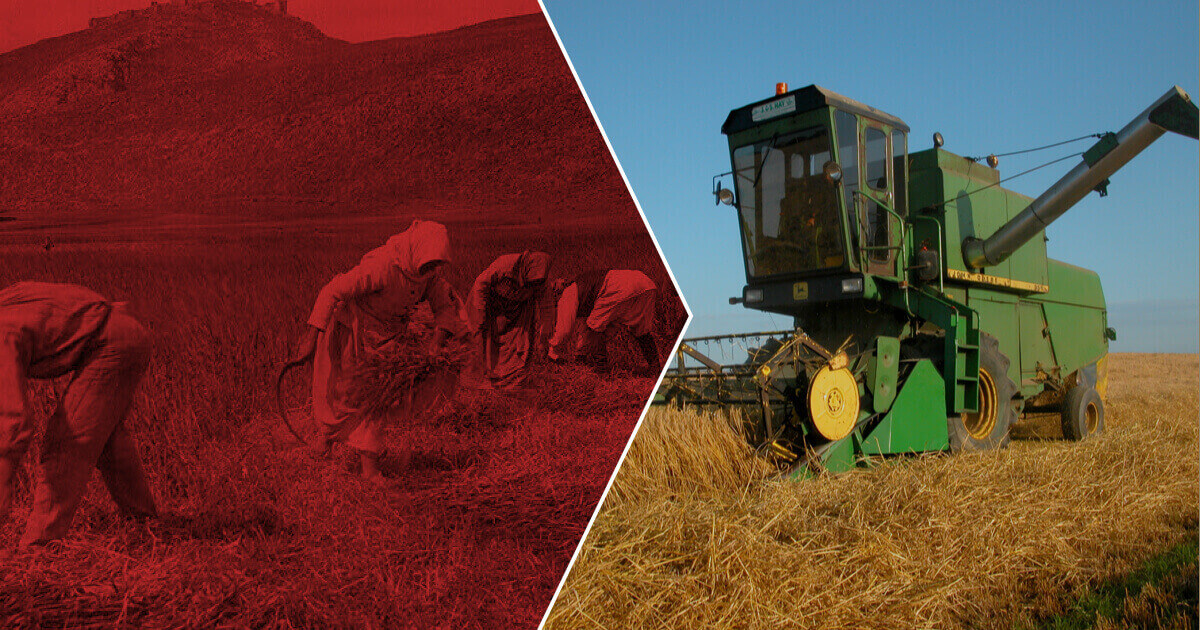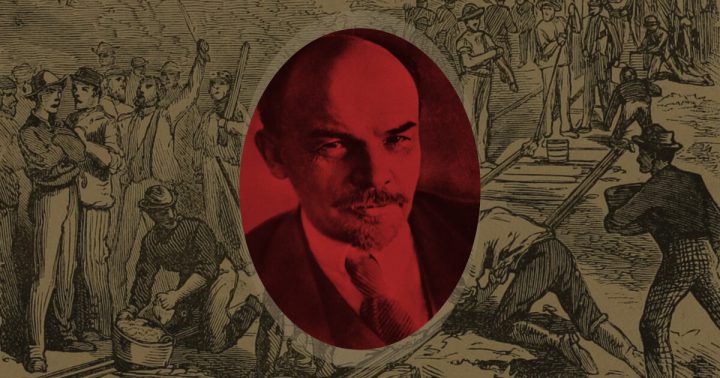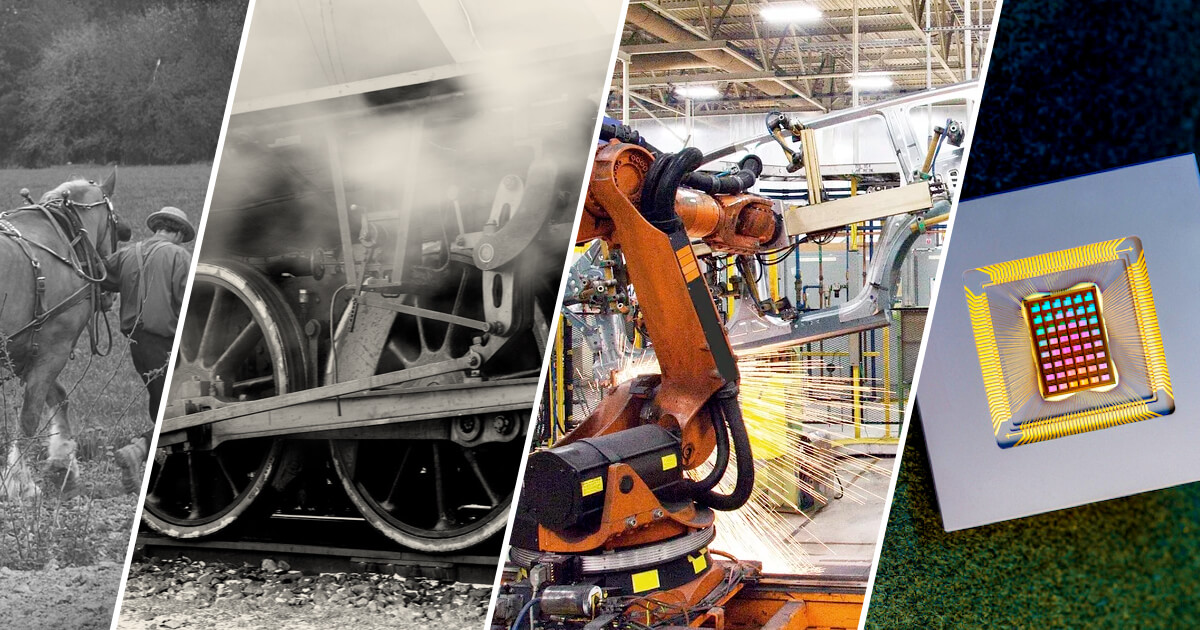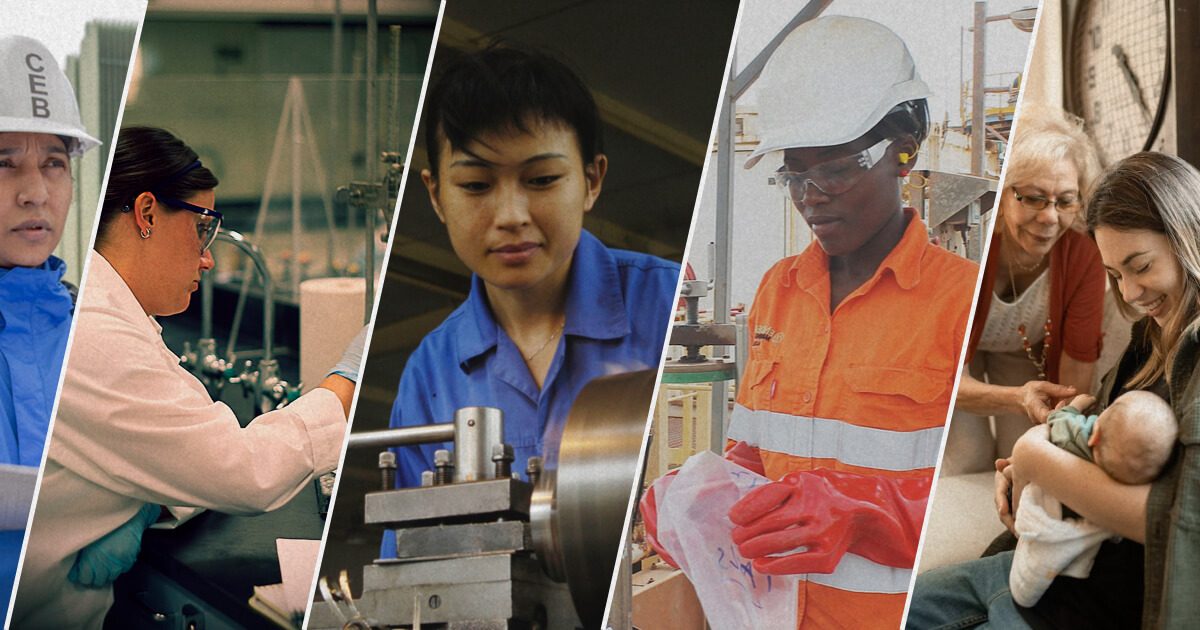When studying human society, Karl Marx affirmed that all changes in social life, in the end, originate from the transformation of the productive forces. The development of productive forces is expressed through the conquest of the nature of men.
Productive forces reflect the actual capability of men in the process of creating wealth for society and ensuring human development. In any society, in order to create wealth, both workers and means of production are needed. Without instruments for the labor process, men cannot create wealth. That development provides us with more convincing practical evidence to continue affirming Karl Marx’s precise view of the productive forces, and at the same time requires us to supplement and develop his view on this issue inconsistent with reality. In the current context of globalization and the Fourth Industrial Revolution, it is essential to clarify all the practical capabilities used in the production process of the society over the world’s development periods to promote social development. Therefore, this article clarifies the basic arguments to analyze Karl Marx’s view on the productive forces and see the need to refresh and supplement Karl Marx’s theory in the current situation.
Introduction
In order to survive and develop, men must work to create material wealth. It is this process that makes the difference in each era. As an expression of the relationship between men and nature, productive forces are constantly moving and developing in the production of material wealth. Today, the modern science and technology revolution with dramatic strides is having comprehensive impacts on the economy of each country as well as the world. The world economy has been profoundly and strongly changing in terms of structure, function and direction of operation. Therefore, in their development process, productive forces have also changed(Kien; 2020a). G A Cohen in Karl Marx’s Theory of History: A Defense pointed out the values of Karl Marx’s philosophy of historical materialism with his contributions to the productive forces. According to him, the new productive force manifests its existence through the new relations of production in which salaried workers use the capital created (Cohen, 2020). The article clarifies mistakes in perceiving and refuting the Marxist theory. The values left behind by Marxist theory about the change of social modes in each era are due to the decisive role of productive forces(Shimp, 2009).
In this article, the authors clarify Karl Marx’s view of productive forces as a central concept of historical materialism. A study on the connotation of this concept is the basis for understanding the entire movement and development in the production of the material wealth of human society. The article has systematically studied Karl Marx’s works on productive forces. Karl Marx, by explaining arguments of historical materialism, pointed out the connotations of productive forces in his works, including “The German Ideology”, “The poverty of philosophy”, “Wage Labor and Capital”, “Value, Price and Profit”. Especially, in “Capital”, the connotation of productive forces is further elucidated by Karl Marx and F. Engels with more insights. It is also the scientific basis for understanding the nature and dynamics of socio-historical development through the labor of men(Marx Karl and Friedrich Engels, 1998). The quantity of production is expressed through the bourgeois economic system in the following order: capital, rent, wage – labor; State, foreign trade, world market(Marx, 2010).
The starting point in Karl Marx’s study on history and society is the production of material life by men’s practical activities. According to him, men began to be distinguished from animals when they produced the means of subsistence to serve their essential needs. He wrote: “Men must be in a position to live in order to be able to ‘make history.’ But life involves before everything else eating and drinking, a habitation, clothing and many other things. The first historical act is thus the production of the means to satisfy these needs, the production of material life itself”(Karl Marx to Friedrich Engels, 2002b; Vygodskii, 2002). So, the first premise for human existence is the production of the means to satisfy needs. It is the very production of material life. Simultaneously with that process, men also create aspects of social life. Karl Marx wrote: “The production of the direct means of subsistence and each certain stage of economic development of a nation or an epoch create a base for the development of institutions, rule-of-law viewpoints, art, and even religious notions of men”(Karl Marx to Friedrich Engels, 2002a). Friedrich Engels wrote that Marx “discovered the law of development of human history” in much the same way that Darwin discovered the law of development of organic natures, with the argument of productive forces in the production of material life, Karl Marx affirmed his complete materialist conception(Marx Karl, 1983).
However, the movement and development of productive forces will not be as pointed out by Karl Marx, because the development of science and technology will change the subjects and means of labor. It also requires workers to change in all aspects. However, within the limited scale of research, this article cannot fully cover the development of science and technology from the time of Karl Marx to date, nor does it discuss the relationship between productive forces and relations of production or clarify influencing conditions such as environment, geography, population or production methods. The above factors still interact and directly affect the development of productive forces(Shaw, 2020).
The highlight of this article is that through the development of the production of material wealth, the productive forces in the time of Karl Marx and today are clearly understood and systematically presented. At the same time, after the death of Karl Marx, up to now, productive forces have changed and transformed in the development process of human history.
Methods
In this article, the authors clarify the arguments about productive forces from Karl Marx’s point of view to prove the values pointed out by him in the movement and development of society. On that basis, the article clarifies the structure of productive forces with their constituents, i.e. workers and means of production. To clarify the development of productive forces, the article explains the arguments about productive forces mentioned by Karl Marx’s theory from his time to the present, i.e. from the end of the 19th century to the beginning of the 21st century.
To shed light on the development of the productive forces, the article deploys methodology of dialectic materialism, which are a system of viewpoints and principles that determine the scope and applicability of requirements and methods in a reasonable and effective manner to explain the relationships between productive forces in the development of their constituents and in the movement and development of society. These methods are the basis for understanding the development of human history, first of all the history of production development, as well as the process of human development in different historical periods. Specifically, with the principle of comprehensiveness, the study must identify productive forces in the production of material wealth, demonstrate the objectivity and inseparable attachments of the constituents of productive forces in their organic relations with each other. Moreover, those relations are extremely rich, diverse and complex, including both essential and non-essential, natural and accidental, primary and secondary relations between productive forces. Also, the article uses the principle of development to point out that in this process, the movement of each subject always goes from low to high, from simple to complicated, and from imperfect to perfect.
The historical principle is specifically understood as productive forces in the process of existence, movement and development under specific space and time conditions from the time of Karl Marx to the present, with direct influences on the properties and characteristics of the subject. If the same object exists under specifically different conditions of time and space, its properties and characteristics will be different, and its nature can even be changed completely.
From the methodology, the article uses a mixed research method combining qualitative ones with the understanding of historical methods to find out the origin, process of development and transformation of productive forces in order to discover their nature and laws. This method of research is used to analyze existing theoretical documents in order to detect trends and schools of research, thereby clarifying the history of researching productive forces. Analyzing means dividing the whole into simple parts, aspects and constituents in order to study and discover each attribute and nature of each factor, i.e. workers and means of production, thereby understand the subject of the study more coherently, systematically, richly and diversely.
Results & Discussion
The view on productive forces
The concept of productive forces has been proposed by many scholars before Karl Marx but interpreted in an idealistic way. This concept was only scientifically explained for the first time in March 1845, when Karl Marx wrote the “Draft of an article on Friedrich List’s book: System of Political Economy”. Here, Karl Marx pointed out the idealistic thought in List’s theory and exposed its bourgeois characteristics. Karl Marx pointed out that productive forces are not some “spiritual essence” as thought by List, but material forces. He wrote: “In order to destroy the mystical radiance which transfigures ‘productive force”, one has only to consult any book of statistics. There one reads about water-power, steam-power, manpower, horse-power. All these are “productive forces”(Karl Marx to Friedrich Engels, 2002 -a). Thus, from the point of view of Marx, it can be understood that productive forces are a concept used to refer to the combination of workers and means of production to create a certain productive force.
The constituents of productive forces in Karl Marx’s point of view
When discussing productive forces, Karl Marx also pointed out the basic elements that constitute them, namely workers and means of production. And when analyzing the elements of productive forces, he used many different ways of classification, such as classifying into means of production and labor power according to the uses of productive forces. Means of production also includes: means of labor, instruments of labor and subjects of labor. Productive forces can also be classified into natural forces and human forces based on their creators. Karl Marx emphasized: “Men, as a productive force, not only create material wealth, but together with natural productive forces become a revolutionary force that promotes the development of society.”(Karl Marx to Friedrich Engels, 2002 -b)
With the two ways of classification stated above, Karl Marx wanted to clarify the relationship and development of productive forces as well as their constituents. Within the scope of this article, the authors follow the first way of classification to clarify the factors constituting productive forces. On that basis, the article explains the following points:
Regarding workers: Workers participate in the productive forces as a commodity of labor power. Karl Marx said: “Labor power or labor capacity is the totality of physical and mental capabilities existing in the body, in a living person, and used by that person when producing a use value”(Karl Marx to Friedrich Engels, 2002 -c).
Regarding means of production, this was clarified by Karl Marx with their constituents being subjects, means and instruments of labor. In which, subjects of labor are material forms capable of being created into items according to purposes and requirements to meet certain needs of men, and only when being impacted, exploited and improved by men do they become subjects of labor. Karl Marx said: “While all raw materials are subjects of labor, it cannot be said that all subjects of labor are raw materials. Subjects of labor are only to be understood as raw materials if they have already passed through the labor process”(Karl Marx, 2002a, 2002b)
Instruments of labor are objects used by men to directly impact subjects of labor to produce material wealth. This proves the practical capabilities of men in the process of transforming the natural world. Men use labor instruments to influence the natural world and create material wealth to serve their essential needs. Also in that process, men grasp the laws of nature and turn nature from a wild and simple place into a “second world” with the participation of their hands and brains. Material production is always changing, so productive forces are a dynamic factor and a process that is constantly being innovated and developed. It is also the basic criterion to assess social progress in a given historical period. Therefore, in “The German Ideology”, Karl Marx asserted: “History is nothing but the succession of the separate generations, each of which exploits the materials, the capital funds, the productive forces handed down to it by all preceding generations, and thus, on the one hand, continues the traditional activity in completely changed circumstances and, on the other, modifies the old circumstances with a completely changed activity”(Karl Marx, 2002c)
Regarding the relationship between the subject of labor, the instrument of labor and workers, according to Marx, in order to transform the natural world to create material wealth, workers need to have a synergy. First of all, it is the strength of the body and the mind – the factors that make up men’s ability to work. He wrote: “In order to possess natural things in a form useful to his own life, man makes use of the forces of nature in him: the arms and legs, the head and hands”(Karl Marx, 2002d). However, if it just stops there, the process of material production cannot take place. In addition to himself, man also uses other factors, such as “using the mechanical, physical and chemical properties of objects to act on other objects according to his purposes”(Karl Marx, 2002d). These objects are called “instruments” by Karl Marx, which helps workers to extend their hands and make the process of affecting nature more effective. If the means of production are a necessary condition for material production, then the workers are the subjects who play a decisive role in the development of production. Thus, according to Karl Marx, without men to build and use instruments of labor to affect the natural world, there will be no production of material wealth.
Regarding means of labor, these do not directly create products but have a great influence on production. Means of production affect social production efficiency, because these factors contribute to increasing or reducing transaction costs and costs for transporting materials and preserving products, which are also taken from the value of products.
In the production process, productive forces in the relationship with workers and means of production will change the production of the society; the workers have a crucial role in making contributions to the production process through their productiveness. According to K. Marx, productiveness is the production capacity of specific productive labor. It reflects the results of men’s purposeful production in a certain unit of time.
Therefore, according to Karl Marx: “Apart from the social form of production, the productiveness of labor depends on the natural conditions under which the labor is performed … The external natural conditions, from the economic point of view, split up into two great classes: natural wealth in means of subsistence—i.e., a fertile soil, waters well stocked with fish, etc.; and natural wealth in the instruments of labor, such as waterfalls, navigable rivers, wood, metal, coal, etc. In the beginnings of civilization, it is the first class which is decisive; later on, in a more advanced society, it is the second”(Karl Marx, 2002e).
However, Karl Marx emphasized that natural productiveness does not play a decisive role in progressive development (i.e. development by increasing social productivity); on the contrary, “Too generous nature will hold the hands of man and walk him like a toddler. It does not make human development naturally inevitable”(Karl Marx, 2002e). Thus, Karl Marx appreciated men’s productiveness. He wrote: “It is the need for social control over a certain force of nature to use it economically, the very need to take it or to master it with large-scale works built by human hands, – it is that necessity that has plays a very decisive role in industrial history”(Karl Marx, 2002e). Productive forces in the relationship with workers and means of production, with the highlight on the role of means of production, are manifested through the development of science and technology in the production process, which Karl Marx thought as immediate productive forces.
Karl Marx highly appreciated the role of science and technology in the process of material production in general and the development of productive forces in particular. Through scientific research, he made the judgment that: “The development of constant capital is an indication of the extent to which general social knowledge is transformed into an immediate productive force, thus it is also an indication of the extent to which conditions of the life process have been submissive to the control of popular wisdom and improved to suit that process; to which productive forces are created not only in the form of knowledge, but also as direct social practice agencies of the real life process”(Karl Marx, 2002f). According to the above argument of Karl Marx, scientific knowledge transformed constant capital such as factories and machinery used in production, and to a certain extent they become an immediate productive force.
In other words, scientific knowledge is applied and materialized into machinery and instruments of production, which are used by workers in the production process, thus becoming an immediate productive force. The conditions for scientific knowledge to become an immediate productive force have been determined by Karl Marx as follows: “The development of machinery system on that path only begins when the great industry has achieved a higher level of development and all sciences serve as capital, while the existing machinery system itself has tremendous resources. Thus, invention becomes a special profession, and for that profession, the application of science to immediate production itself becomes one of the decisive and simulating factors”(Karl Marx, 2002g).
Thus, standing on the historical materialist point of view, Karl Marx affirmed that productive forces represent the practical capability of men in impacting the natural world to create material wealth. Therefore, productive forces also measure the development of the material production of men in each certain socioeconomic form.
By clarifying the factors that make up productive forces, Karl Marx believed that, when considering the process of labor abstractly without depending on its historical form and as a process between men and nature: “In terms of results, i.e. using products to assess the whole process, both means of labor and subjects of labor are means of production, while labor itself is productive labor… This definition of productive labor is from the point of view of a simple labor process”(Karl Marx, 2002h).
The development of productive forces in the Fourth Industrial Revolution
Today, our living conditions have many new and different things compared to the era of Karl Marx. Science and technology have made great advances, contributing to the creation of a productive force that humanity has never seen before. General social knowledge is becoming an immediate productive force, just as Karl Marx predicted; and productivity, as a result, increases rapidly. Productivity is measured by the number of products made in a unit of time, or by the amount of time spent to produce a unit of product. Through that, productivity reflects the effectiveness of the use of labor. In essence, it measures the output value generated by a worker over a certain period of time, or the amount of time it takes to produce a unit of output. Thus, productivity reflects the relationship between the output (product) and the input (labor) measured by working time.
Currently, the Fourth Industrial Revolution is characterized by the combined use of hardware, robots and information technology software. It is the combination of advanced technologies such as the Internet of Things (IoT), Artificial Intelligence (AI), virtual reality (VR), augmented reality (AR), social networks, cloud computing, mobility, big data analysis (SMAC), etc. to transform the entire real world into a digital world at a very fast pace and very large scale, integrating many fields with multi-dimensional interaction(Kien; 2020b).
Productive forces today have far exceeded those in the time of Karl Marx. Karl Marx developed his doctrine during the second industrial revolution (the first revolution was marked by the advent of the steam engine, the second one by electricity). Meanwhile, humanity is near the end of the third industrial revolution with digital instruments (computers) and is entering the fourth revolution to open up the era of artificial intelligence.
The achievements of modern science and technology have directly impacted the development of all constituents of productive forces: means of production and workers. Especially, in the fourth industrial revolution, men mainly use means of production being natural resources and machinery to create products. The fourth industrial revolution is changing the way of production and manufacturing, and is strongly influential on all factors of productive forces. Therefore, Marxist socioeconomic theory in general and view on productive forces in particular, despite having many sustainable values, are not without room for development. V.I.Lenin, who relentlessly defended and developed Marxism, also emphasized: “We do never consider Karl Marx’s theory as something that is complete and untouchable; on the contrary, we believe that the theory only lays the foundation for the science that socialists need to further develop in all aspects if they do not want to become obsolete”(Vladimir Lenin, 1978).
Regarding workers today, when it comes to the development of productive forces in the capitalist period, he argued that the main workforce of a capitalist society is the workers, the proletariats. They are “a social class that only earn their living by selling their labor”, “a class of people who do not own any means” and “forced to sell their labor under capitalism in exchange for necessary means of subsistence(Karl Marx, 2002i).
Today, the Fourth Industrial Revolution affects the number of jobs created through the replacement of labor power with machines, robots, artificial intelligence and the application of information technology to a number of industries and professions that are rapidly penetrating the workplace in the labor market. The trend of employment will shift from labor-intensive production to one that requires more knowledge and technology. The fourth industrial revolution also changes the function of humans in production: human gradually ceases to directly operate technical systems, and turn to mainly create and adjust that process.
Therefore, the working class includes not only purely manual workers but also intellectual ones. Moreover, in the current period, workers themselves have also changed significantly. In the time of Karl Marx, the workforce was mainly mechanical workers, mostly manual ones; but today, the achievements of the fourth industrial revolution have increasingly improved labor instruments; human labor is liberated, and the level of knowledge, skills and techniques of workers is constantly improved. Therefore, in many factories, the number of scientific and technological human resources directly involved in the production process accounts for an increasing proportion, which is much higher than the number of regular manual workers. The number of intellectual workers tends to increase in both quantity and quality, which has gradually changed the proportion of unskilled and highly-skilled workers. Workers need to meet the requirements of technical skills (at a medium and high level) including specialized knowledge and skills to perform specific jobs, and also need to have core, soft working skills including: the ability to think creatively and be proactive at work; skills in using a computer and the internet; foreign language skills, teamwork skills, safety skills and compliance with labor discipline, problem-solving skills, time management skills, concentration skills, etc.
Digital technologies that integrate all information regarding technology, processes, production methods, needs of industries, professions and skills, etc. and especially the ability to connect and share information around the world through technological devices will change the supply and demand structure in the labor market, eliminate the hard border between countries in the region, make the regional labor market more vibrant and promote job creation for each member country. The improvement of qualifications of human resources by applying automation to production will offer the chance to transfer workers to different active positions and train them to quickly adapt to the technology. Instead of having to do their job manually, now workers will be able to improve their skills to control machines to do those jobs for them.
Therefore, this helps workers to be more specialized and have the fastest access to modern technology. Workers are now liberated not only in terms of manual labor but also in terms of mental labor. Machines – the instruments of labor in the era of the fourth industrial revolution are not only an extension of the worker’s arm, but that arm is also “smart”. The communication between workers – high-end robots – intelligent machines… affects the introduction of new raw materials and fuels to create products according to human needs, even meeting the increasing needs for personalization of each consumer.
Instruments of labor are increasingly improved. The fourth industrial revolution frees up human labor; and the level of knowledge, skills and techniques of workers is constantly improved. In that context, production needs to be supplemented with the aspect of “man living in harmony with nature”. Instruments of labor are now represented by automation in production. Automation in production means how workers use advanced technologies in the production process to transfer a large part or all of the production activities done by human labor to machines and equipment. Thus, automated processes will not need too much human intervention, but will use different control systems to help machines operate faster and more accurately, with some processes are even fully automated. Automation in production now will become a thriving field that is shaped by the Internet of Things (IoT), big data and analytics services relating to sweeping digital changes in the production process. Thanks to this, machines operate 24/7 without having to rest or take time off between shifts like workers. Moreover, the operating speed of automated production lines is many times faster than human manual operations. Therefore, it will help factories improve productivity significantly. At that time, the development of productive forces is promoted.
The workforce today is more diverse thanks to the application of technology in the fourth industrial revolution. Resources, fuels and raw materials have become more diverse, including many with increasing knowledge content. In an industrial economy using natural resources as inputs, these resources are becoming scarcer and exhausted due to the overexploitation of men. However, the rapid development of science and technology has helped humans discover many new properties of natural resources. Many materials that were previously thought to be useless have become those of great utility, and their useful properties are multiplied with the establishment of many new industries which create new, more diverse and richer subjects of labor. New materials are, in general, lighter, more durable, recyclable and adaptable. They can be smart, self-repairing or self-cleaning materials; metals that have the ability to restore their original shapes; ceramics and crystals that can turn pressure into energy. Especially, many products are made not from traditional materials, but from nanomaterials, molecules or even atoms… In the field of digitization, a prominent feature of digital technology is the birth of the Internet of Things (IOT). This refers to the relationship between things and humans through connection technologies on different platforms (iPhone, 3G, 4G, 5G; and when the quantum Internet comes to life, it can be nG(M Skilton, 2018; Mark Skilton & Hovsepian, 2018).
Means of labor today include self-driving vehicles (airplanes, cars, ships, etc.) which have made an important step forward to reach the civil and commercial scale and level, rapidly develop and gradually popularize in countries around the world…. 3D printing technology creates a product by printing its layers according to a pre-made 3D model. All products for humans use (tools, cars, airplanes, houses and even parts of the humans body like prosthetic ears, arms, legs, etc.) can be produced by 3D printing, fundamentally changing the way of production. High-end robots, i.e. robots with artificial intelligence are being used more and more widely, making the interaction between human and smart machines a reality.
Conclusion
Productive forces today have many new features that far exceed those in the time of Karl Marx. Especially, industrial revolutions have pushed science and technology to the role of a new productive force, with the high level of workers and modern means of production. Thus, we cannot deny the great role of productive forces in mankind’s conquest of the natural world. Also, the development of productive forces has led to the process of globalization and is the driving force for the development of the fourth industrial revolution. That development is the basis for continuing to affirm the precise and sustainable values of Marxism about productive forces; at the same time, it sets forth new requirements to increase the vitality of that doctrine to be suitable for the conditions and circumstances of the current period. That is why even today people still want to learn about the theory of Karl Marx.
Republished under a CC BY-NC-ND 4.0 creative commons license. Photo: Robert Scarth via Wikimedia Commons (CC BY-SA 2.0).
References
Cohen, G. A. (2020). Karl Marx’s theory of history: Princeton University Press.
Karl Marx, F. E. (2002a). Marx & Engels Collected Works (Vol. Vol 42 ): Taylor &
Francis, Ltd. .
Karl Marx, F. E. (2002b). Marx & Engels Collected Works (Vol. 23 ): Taylor & Francis,
Ltd
Karl Marx, F. E. (2002c). Marx & Engels Collected Works (Vol. 3): Taylor & Francis,
Ltd.
Karl Marx, F. E. (2002d). Marx & Engels Collected Works (Vol. 23): Taylor & Francis,
Ltd.
Karl Marx, F. E. (2002e). Marx & Engels Collected Works (Vol. 23): Taylor & Francis,
Ltd.
Karl Marx, F. E. (2002f). Marx & Engels Collected Works (Vol. 46): Taylor & Francis,
Ltd.
Karl Marx, F. E. (2002g). Marx & Engels Collected Works (Vol. 46): Taylor & Francis,
Ltd.
Karl Marx, F. E. (2002h). Marx & Engels Collected Works (Vol. 23): Taylor & Francis,
Ltd.
Karl Marx, F. E. (2002i). Marx & Engels Collected Works (Vol. 4): Taylor & Francis,
Ltd.
Karl Marx to Friedrich Engels. (2002a). Marx & Engels Collected Works (Vol. 19).
Lawrence & Wishart.
Karl Marx to Friedrich Engels. (2002 -a). Marx & Engels Collected Works (Vol. 42):
Lawrence & Wishart.
Karl Marx to Friedrich Engels. (2002 -b). Marx & Engels Collected Works. 3, 65.
Karl Marx to Friedrich Engels. (2002 -c). Marx & Engels Collected Works (Vol. 23).
Karl Marx to Friedrich Engels. ( 2002b). Marx & Engels Collected Works (Vol. 3).
Kien;, P. T. (2020a). Industrialization and modernization with the development of
production forces in the industrial revolution 4.0 in Vietnam today.
Kien;, P. T. (2020b). Industrialization and modernization with the development of
production forces in the industrial revolution 4.0 in Vietnam today. Hanoi:
National political publisher truth.
Marx, K. (2010). A contribution to the critique of political economy. In Marx today
(pp. 91-94): Springer.
Marx Karl and Friedrich Engels. (1998). The German Ideology. New York: Prometheus
Books.
Marx Karl, F. E. (1983). The Portable Karl Marx. Ed. Eugene Kamenka New York:
Penguin Books.
Shaw, W. H. (2020). 16. Karl Marx on History, Capitalism, and… Business Ethics? In
Wealth, Commerce, and Philosophy (pp. 321-340): University of Chicago Press.
Shimp, K. (2009). The validity of Karl Marx’s theory of historical materialism. Major
Themes in Economics, 11(1), 35-56.
Skilton, M. (2018). The 4th Industrial Revolution Impact. 25.
Skilton, M., & Hovsepian, F. (2018). The 4th industrial revolution: Springer.
Vladimir Lenin. (1978). LeninCollected Works (Complete) (Vol. 4). Hanoi:
Publishing House. Progress, Moscow.
Vygodskii, V. (2002). What Was It Actually That Engels Published in the Years
1885 and 1894? On the Article by Carl-Erich Vollgraf and Jürgen Jungnickel
Entitled”’Marx in Marx’s Words’?”. International Journal of Political Economy,
32(1), 79-82.














